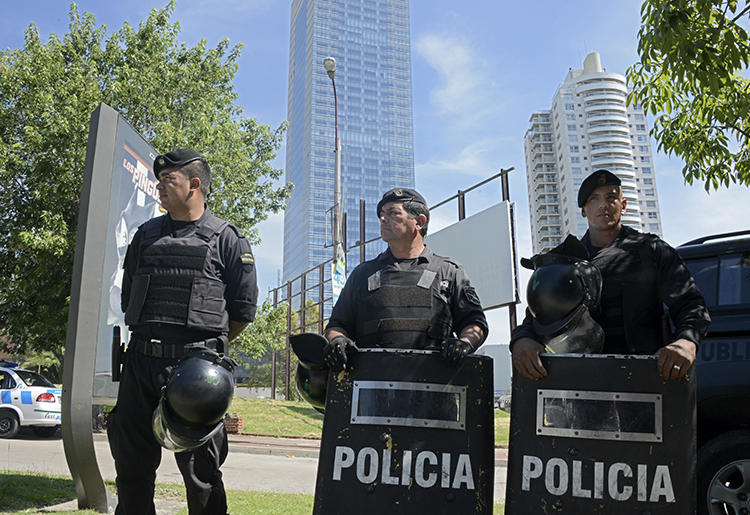Miami, May 14, 2020 — Uruguayan lawmakers should reject a proposed regulation criminalizing insulting police, and ensure that laws do not infringe on free expression, the Committee to Protect Journalists said today.
On April 23, newly elected Uruguayan President Luis Lacalle Pou and legislators from his National Party introduced an “urgency law” to the country’s parliament, a package of legislation that is introduced at the beginning of a new administration and which is subject to expedited approval, according to news reports.
Article 11 of that law criminalizes behavior that “belittles,” “offends,” “undermines,” or “insults” a police officer, and imposes jail terms of 3 to 18 months for those convicted, according to the text of the draft legislation.
Under Uruguay’s constitution, the law will pass automatically within 90 days unless legislators agree to reject or modify it. The National Party’s governing coalition has a legislative majority in both chambers of parliament, according to press reports.
“The rule criminalizing offending the police currently included in Uruguay’s urgency law is inconsistent with the right to freedom of expression, and could have a chilling effect on journalists reporting on police,” said CPJ Central and South America Program Coordinator Natalie Southwick, in New York. “The Uruguayan legislature should reject Article 11 of the urgency law and reinforce Uruguay’s position as a strong and mature democracy that consistently upholds press freedom standards in the region.”
Article 11 would amend Article 173 of Uruguay’s penal code, which criminalizes offenses that undermine the authority of public officials, to specifically add offenses against police. The new article adds that an individual who expresses a “mere discrepancy” with police would not be criminally liable, but does not define what this means or specify how law enforcement might differentiate between a “discrepancy” and one of the more serious offenses criminalized under the law.
The Center for Archives and Access to Public Information, a local free expression group, and Edison Lanza, the special rapporteur for freedom of expression at the Organization of American States, both called for Article 11 to be dropped from the law.
In a previous draft of the urgency law, which was circulated in January, CPJ expressed concern over a rule that provided for the so-called “right to be forgotten.” The rule was removed from the draft that was submitted to parliament, according to reports.
CPJ emailed the Uruguayan Parliament and the National Party for comment, but did not receive any responses.
